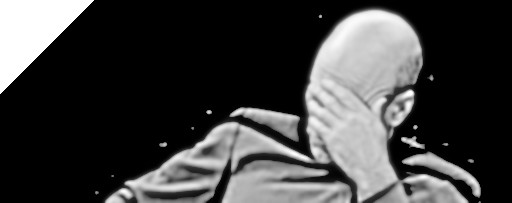10 ideas for 1500 days of more offline work
So. Let’s assume you want to avoid being online so much for a while. A long while: oh, say, the duration of one US presidential term. Think through this with me. We can do it.
1. Understand your “why” before you commit. For a lot of people, being more online is exactly what’s needed. They thrive on resistance, on organising, or maybe their work just gets better when they’re plugged in. But if you wake up one morning thinking, “I’ve got to stop being here”, and gesturing vaguely towards the browser window, then it makes sense to work out why it would help to taper your online use. I’ll be doing this because my mental health is better without being always “on”, and because my work and my fun suffers when bad news distract me.
2. Get clear on what you can actually achieve. Come on now. I’m typing this in a browser window, because that’s the least bothersome workflow for my blog. So much of what we’re doing is dependent on staying connected to the internet. Which means that, as you look through all this, you’ll need time to decide: which connections are vital, and which you can pause?
3. Start new habits and flows today. Having said that, I think you’ll agree we’re heading for something resembling an ice cold bath right now. You can make big changes. You can try out new things. If you’ve been putting them off, well, right now you might be feeling the stimulus you needed.
4. Sort out your sticks and carrots. I’m the kind of guy who won’t do an onerous thing unless there’s a financial penalty to me not doing it. And sometimes, I’m also the kind of guy who will ride hills and country lanes in cold drizzle because he knows there’s coffee and cake at the end of it. Katy Milkman’s How to Change is a brilliant book to have to hand, as you’re building that offline life for yourself. It explains the whys, whats and hows of our habits and psychology, in a practical manner. And it will help you set up a context in which sticking to offline work is easier.
5. Communicate, very clearly, which lights you’re leaving on. I’ll be ghosting every social medium apart from Mastodon in the coming days: LinkedIn is a depressing hellhole and Bluesky is probably throwing a massive wobbly right now. Let your friends and allies know where to find you, and keep these links very, very much alive. You will need them.
6. Take it one hour at a time. These days, I’m fond of playing soundtracks from a favourite game, and sitting at my desk with a new book. I can’t do it for long, but it’s a new chunk of my day which I’m spending offline. It will build up over time if I want it to, but I want to start somewhere.
7. Be kind and patient with yourself and everyone around you. My fingers still sometimes automatically want to type in the news websites’ URLs when I’m bored. I still find myself picking up my phone for no good reason. This isn’t going to go away all at once. We’re all working with what we’ve got.
8. Work through the downtime. What you’re cutting off, as you’re trying to stay away from news alerts and notifications, are two powerful hormonal arrangements: cortisol and dopamine. We’re never 100% free of either of these. Something will need to fill the space you’re creating by making the switch to offline. Is there work to catch up on? Study? Chores? New hobbies? Make a list and make a start. Anna Lembke’s Dopamine Nation is a great book if you want to understand more about how the hormones work.
9. Be as selfish about it as you need to be. Listen, it can really feel like a betrayal, telling people that you’ll be less online in a time like that. Who are you to be acting so wholesome and privileged? I don’t say it lightly, though: if you always conform 100%, the next 4 years are likely to mess you up real bad. It’s OK to build your own stuff to fill your days. And it’s OK to want less of other people’s stuff in them.
10. Tech and gadgets come last in this list. Yes, there are filters. Yes, RSS readers are a great idea. Yes, apps like Freedom and RescueTime. Yes, plain text and command line if you’re feeling extra punk. But work through the other ideas first. Sort out where you’re coming from, who’s around you, what place everyone is in. Then adjust your tech to suit that gestalt. Doing it the other way around, if you believe McLuhan, might have been what numbed us into this mess.
Good luck. See you outside.

